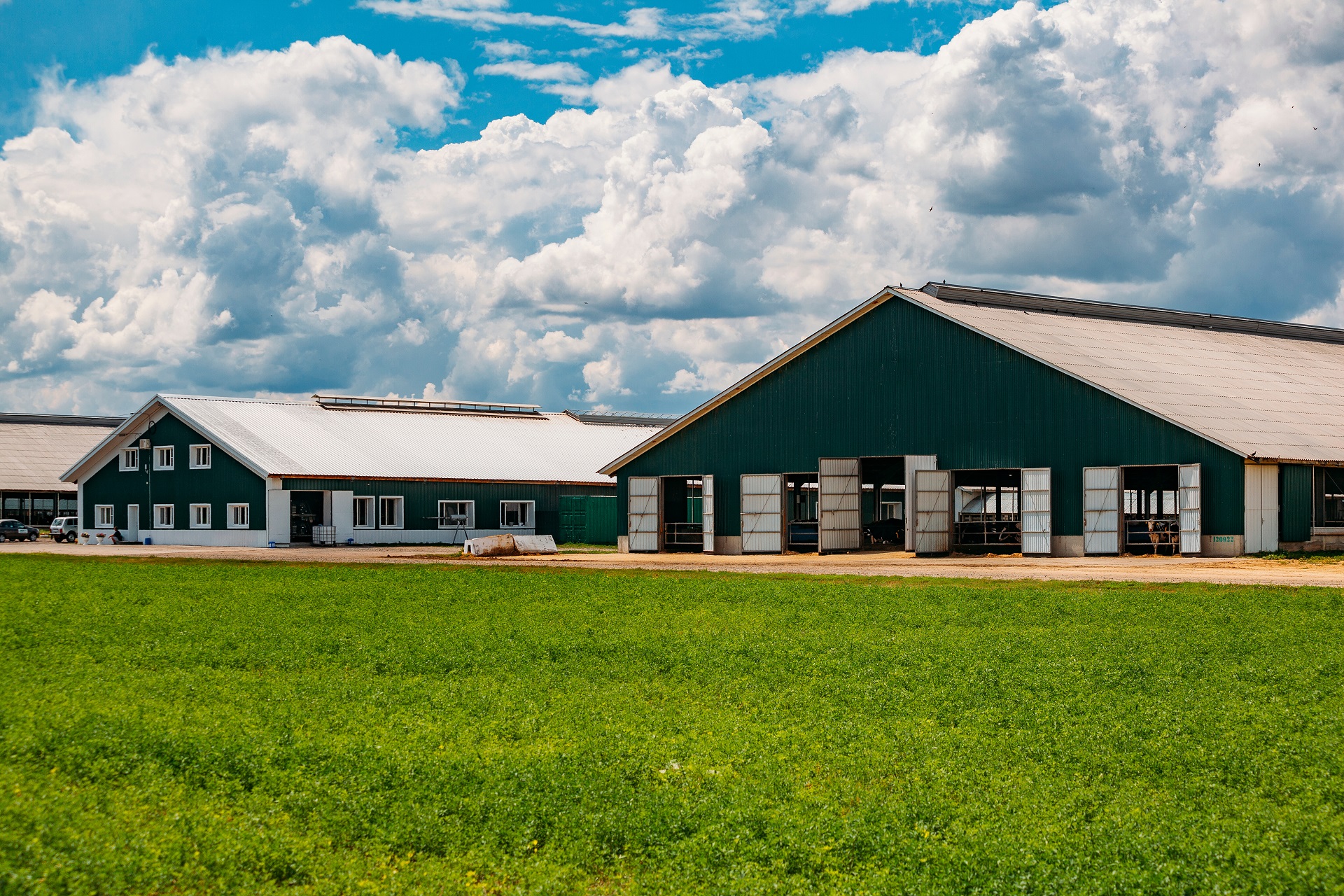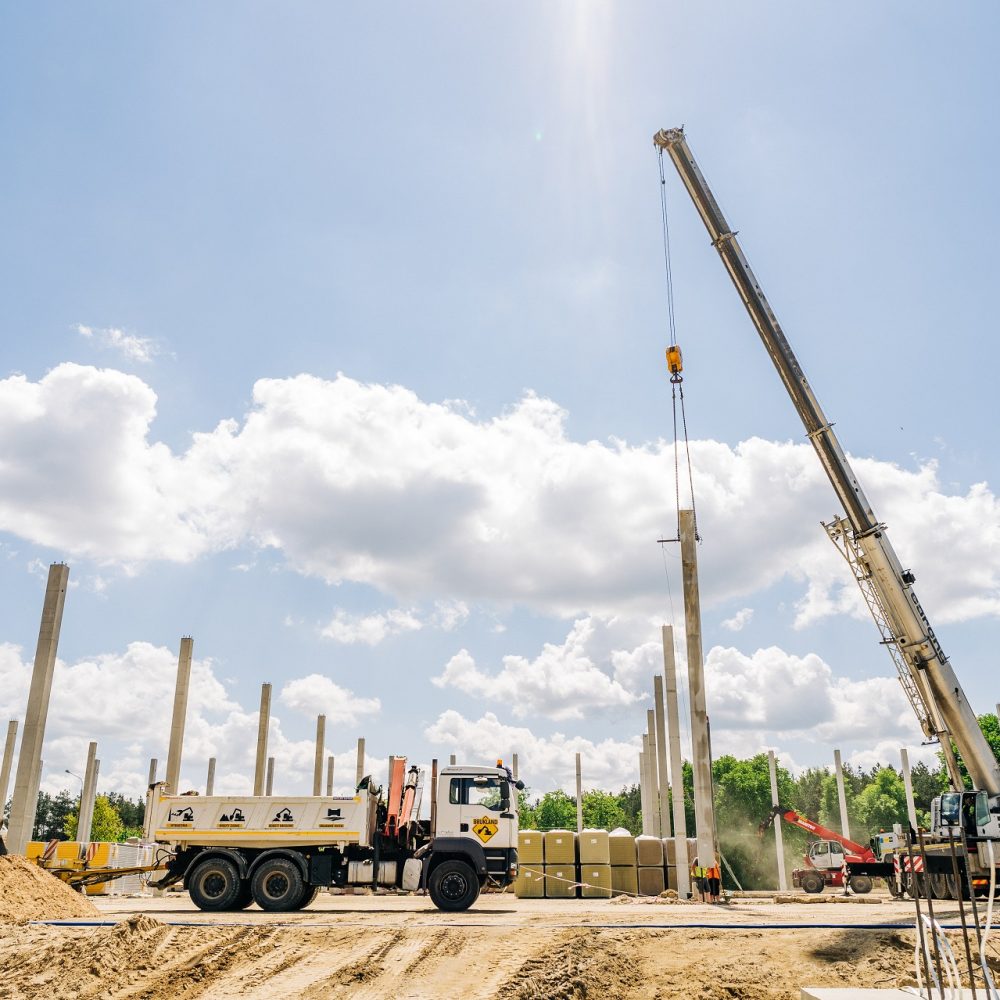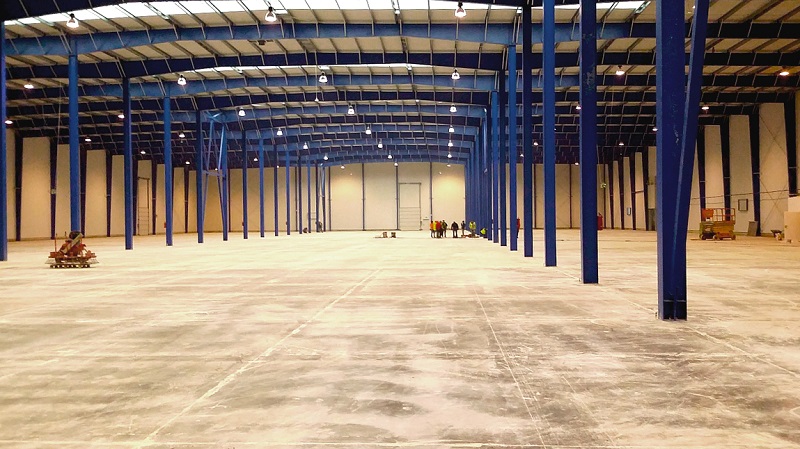
Agricultural halls are gaining in popularity. This is due to the development of farms and the systematic increase in their size. And this automatically requires, both, more agricultural machinery, which needs proper storage in winter, and the crops themselves, which need to be stored in optimum conditions. Traditional halls for agriculture, i.e. the masonry ones, are increasingly being replaced by steel structures with lightweight design and which are quick to build. What purpose might they have? Why choose this solution? Our answer.
Halls for agriculture – purpose
Although steel halls can serve a wide range of functions on a farm, the basic and common feature of all facilities is the protection of property and crops from weather conditions such as rain, snow, but also frost or excessive humidity. They are therefore excellent for use as storage rooms, where crops are kept in appropriate conditions, or as cold rooms, where fruit and vegetables are stored to survive the winter months without compromising their value. But they can also serve as livestock sheds for pigs or poultry, or as garages for storing agricultural vehicles and carrying out necessary maintenance or machine repairs in the off-season. The load-bearing structure of agricultural steel halls is, in most cases, very similar. However, depending on the intended use, facilities will vary in size, equipment and utilities such as heating, ventilation and lighting.
Agricultural machinery – how do you look after it?
The efficiency of agricultural operations, irrespective of the size of the farm, largely depends on the condition and functionality of the machinery used. Regular servicing of combines, seed drills or tractors and day-to-day troubleshooting, combined with proper storage of machines off-season, will certainly help to ensure long trouble-free operation.
Jedną z charakterystyk prac rolnych jest ich sezonowość. W Polsce, ze względu na długą i mroźną zimę, sezon na prace rolne trwa średnio od końca marca, kiedy
Seasonality is one of the key features of agricultural work. In Poland, due to the long and cold winter, the season for agricultural work lasts on average from the end of March, when vegetation accelerates and cultivation, fertilisation and the first sowing are done, until October, the month dedicated to preparing not only plants but also agricultural machines for winter. These, before a long break in use, should be thoroughly cleaned and the necessary maintenance work carried out.
Only after that are the vehicles ready for the winter break. And where to store them? The optimum solution is halls for agriculture, although the roof alone in the form of steel sheds for agriculture is sufficient in some cases.
Storage halls for agriculture
The nature of farm work requires large enclosed spaces for storing harvested crops or for agricultural machinery and equipment off-season. This is why agricultural storage halls are becoming increasingly popular. They are functional, practical and, when suitably arranged, can perform several different functions, depending, for example, on the time of year and the specific nature of the work being carried out. An agricultural hall is definitely not a project worth saving on. It will help protect your crops for the winter, but also your motor vehicles – stored for months outdoors, they are quicker to corrode and suffer other breakdowns, which can be very costly to repair.
Halls for agricultural machinery
The best solution for storing machinery off-season is enclosed premises such as agricultural halls or, as may be the case on large farms, special halls for agricultural machinery. Vehicles should be taken to this hall immediately after maintenance, so that the preserved machine is not directly exposed to weather that degrades the preservatives. A properly designed and built agricultural hall protects machinery from rain and snow, and therefore also from moisture. And this one is particularly dangerous during a long layover.
But what if you do not have the space to store all the machines inside the hall? Then, for outdoor storage in winter, choose those units that are the least complicated and most resistant to the weather conditions, and try to provide them with at least a canopy roof. Manufacturers recommend that machines should be set up on a hard concrete surface with a suitable slope so that excessive moisture can drain more easily. It is also a good idea to use blocks or supports to relieve pressure on the tyres. A big mistake is to cover machinery for the winter with tarpaulins or plastic sheeting. These result in a lack of ventilation and prevent moisture evaporation. And the moisture evaporating from the ground accumulates under the tarpaulin, which can only increase the risk of corrosion. This is where steel sheds for agriculture will work much better.
Steel halls for agriculture – advantages
The steel halls we offer for agriculture are certainly a solution worth considering for the construction of essential farm premises. Why? At Commercecon, we have over 20 years of hands-on experience in the design and construction of mixed-use facilities for a diverse customer profile. The knowledge we have gained allows us to carry out each project with a view to saving investors’ time and minimising the construction cost. The advantage of steel agricultural halls is certainly the short lead time, which can be as short as a few weeks for small-scale structures. The steel construction of the agricultural halls allows the construction of buildings of almost any size and, importantly, the buildings are designed in such a way that they can be easily extended in the future to meet the changing needs. A facility built this way is highly usable and, if designed properly, it can perform several different functions simultaneously.



